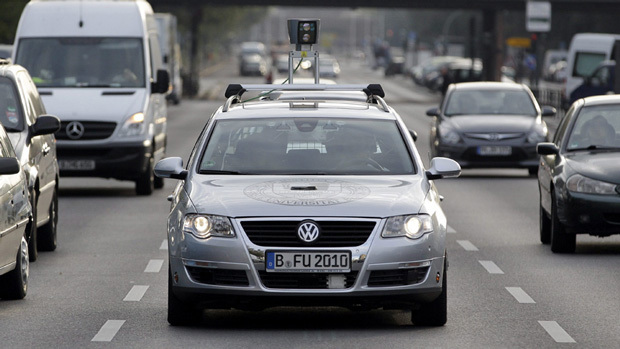Driverless cars are the road to our future
By Caitlin Van Den Brink, Contributor
Google’s latest technology allows cars to navigate both crowded freeways and secluded side streets without any assistance from their human owners by using a series of computers, cameras, and sensors. By the way, these new computers can drive better than you or I can.
According to Google, their test-fleet of driverless cars has travelled nearly half a million kilometres already—and without so much as a fender bender.
The new driverless cars can offer unparalleled safety on the road; a safety that we can never achieve because—whether it’s constantly changing lanes to be in the “faster” one or switching the radio station for the fiftieth time—human beings are just too, well, human.
Driverless cars are designed to basically do what’s best for the rest of the cars on the road: obey the speed limit, keep a proper distance from other cars, stick to one lane. All the things that we know we should do, but don’t.
There would be no more distracted drivers quite simply because the distracted wouldn’t be driving. Stressed because you’re running late? Frazzled because there’s too much homework? Pull out your laptop while you’re on the road and start working while you make your way to your destination.
There would be no more drifting all over your lane because of one oh-so-important “lol;” no missed shoulder checks because you decided to glance at your Facebook page instead.
Driverless cars could improve the quality of life for just about everyone. The physically impaired and the blind would not have to rely on others for transportation. Children would be able to get themselves to school. No one would have to be anxious about driving in unfamiliar areas anymore. Sleep-deprived business people could get extra shut-eye on their way to work. Without a driver, there would be no more worrying about drinking and driving.
Beyond these perks, driverless cars could theoretically do the work of two or three driver-controlled vehicles. Just imagine: it could drop you off at work or school, drop off your spouse, and then drive itself to the mechanic for an oil change before picking you up again. And it would do all this with a higher fuel efficiency than a driver-controlled car because the vehicle would be driving in a way that is, overall, more efficient than how most humans would be.
As a matter of fact, the Wall Street Journal claims that more than $100 billion in time and fuel could be saved because of driverless vehicles.
Just think about it, how many of us have stories about nearly getting hit by an inattentive driver while we were crossing the street? How many of us have been cut off by someone who’s just too distracted to watch out for others?
Well, luckily, those days are soon to be over.

